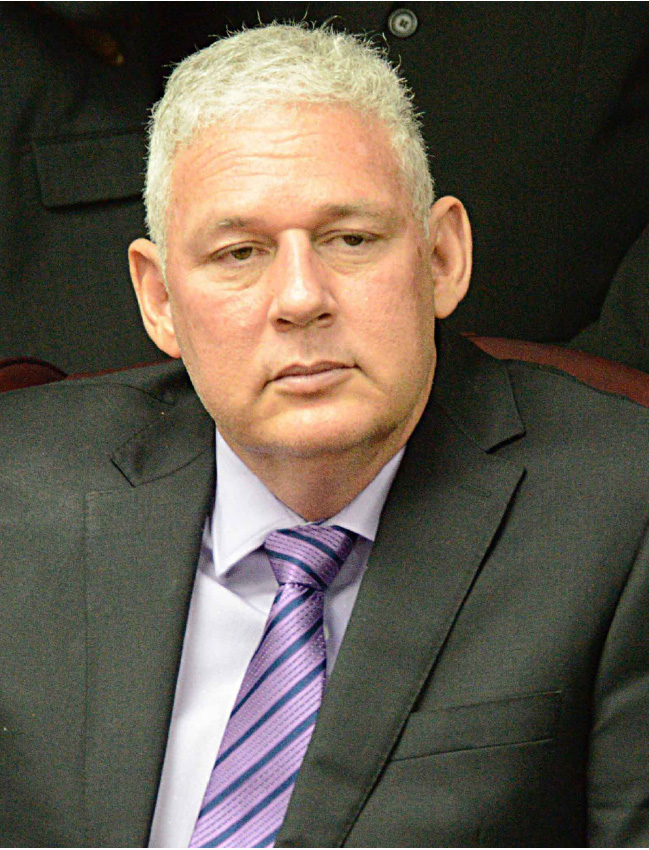Is the island’s banana industry nearing collapse?
The Saint Lucia Labour Party believes so, stating last week that it was reliably informed that regular shipments of bananas from Saint Lucia to the United Kingdom (UK) have been curtailed significantly and that there is unease among banana farmers and leaders about the immediate future of the still vital industry.
But can the curtailing of shipments be attributed to a collapse or near collapse of the local banana industry as indicated by the opposition?
This is not so, as according to a spokesperson from the National Fair Trade Organization (NFTO). Banana output is expected to increase come November.
Efforts by THE VOICE to determine whether shipments of bananas to the UK had indeed been curtailed were unsuccessful after reaching out to the Office of the Permanent Secretary of Agriculture and the Banana Production and Improvement Project for comment.
The aforementioned entities presented the National Fair Trade Organization (NFTO) as the best spokesperson on the subject.
After several attempts at reaching out to the NFTO THE VOICE was able to determine that indeed regular shipments to the UK had been severely reduced.
“That was the case last week and this week,” a spokesperson from the NFTO said noting that one container of the fruit was shipped to the UK on successive weeks compared to more than one container of bananas being shipped prior.
Former Agriculture Minister Moses ‘Musa’ Jn Baptiste said that “Banana shipments have now been reduced to one container of banana boxes per week containing approximately one thousand boxes,” and that “shipments over the last two years moved from twelve containers to seven to five and now to one.”

“Information reaching the Saint Lucia Labour Party indicates that one exporter has been handling exporting of the fruit to the UK and business arrangements with that exporter to have a regular and increasing supply of bananas to the UK market have not met the expectations of farmers, who were promised by the UWP government and Prime Minister an increase to sixty thousand tonnes of fruit in exports annually,” Jn Baptiste said.
Prime Minister Allen Chastanet and Agriculture Minister Ezechiel Joseph had both spoken of increasing the tonnage of the fruit for export as early as 2016, soon after assuming their respective positions in government.
Both ministers promised French markets for the local fruit even going as far as visiting neighbouring Martinique and Europe’s France, touring these countries distributive systems, all in an effort to see the local fruit not only in English supermarkets but in French stores as well.
Saint Lucia, four years later has yet to export bananas to the French markets with Prime Minister Chastanet identifying a number of reasons for the failure.
In an interview with host of the television series “Untold Stories”, an episode of which was recently aired, Prime Minister Chastanet said when Saint Lucia was about to send over to the French market a certain amount of fruit tonnage “we had a hurricane, the crop got destroyed.”
“We build back the demand (and) as we were about to send it to Martinique again there was a significant shortfall in the Dominican Republic and Ghana, all our bananas were needed for the UK Market,” Chastanet said.
![Image: Agriculture Minister and Acting Prime Minister Ezechiel Joseph at Taiwan’s National Day celebratory event in Saint Lucia. [Photo: PhotoMike]](https://www.thevoiceslu.com/wp-content/uploads/2019/10/Agriculture-Minister-and-Acting-Prime-Minister-Ezechiel-Joseph.jpg)
Despite his regime’s failure to ship local bananas to the French market the prime minister said he is absolutely committed to the banana industry.
According to reports, there are certain standards banana farmers must maintain in terms of the level of chemicals used in the production of the fruit and its preparation for export.
THE VOICE learned that after the fruit is tested it must show what is known as a Maximum Residual Limit (MRL). It seems that over the past weeks the tested fruit has been showing an unacceptable level of MRL.
“Of major concern to the farmers and their leaders is the issue of costs to farmers relating to the Maximum Residual Limit (MRL). This relates to the maximum quantity of specific chemicals recommended to be used to get fruits ready for packaging. The penalties for surpassing that limit are borne by farmers. This cost has been on the increase and it is reported that recently fruit has been rejected due to that problem,” Jn Baptiste said.
What happens when the fruit shows this unacceptable level of MRL is that it is dumped with the exporter being left to foot the bill for the destroyed fruit, a cost, Jn Baptiste said, that is passed on to the farmers.

Supermarkets like Sainsbury and Waitrose in the UK will continue testing bananas coming out of Saint Lucia until the island receives a positive release, meaning that the MRL is within acceptable levels from any banana loaded container that is tested. Should a container receive a positive release stamp of approval then testing will not be as intense as it is now.
The drought Saint Lucia experienced this year played a major part in current low banana productivity levels.
“Coming out of the drought we could not meet the desired levels of banana production. By November one should expect a higher level of production…” noted the NFTO spokesperson.
Jn. Baptiste meanwhile is not happy with the Banana Production and Improvement Project calling it “a dismal failure.” According to him, that unit has failed to help farmers dramatically increase the volume of bananas shipped to the UK and the quality of fruit has not shown consistent improvement.
“The claim by the Minister that farm numbers have increased to 764 cannot be substantiated on the ground today,” Jn. Baptiste said.






![Attendees at the UHC logo and website launch [Photo credit: GOSL]](https://thevoiceslu.com/wp-content/uploads/2026/02/Attendees-at-the-UHC-logo-and-website-launch-380x250.jpg)






![Remnants of an alleged drug boat blown up in a lethal strike by the U.S. military last week surfaced off Canouan on Saturday [Photo credit : St Vincent Times]](https://thevoiceslu.com/wp-content/uploads/2026/02/Remnants-of-an-alleged-drug-boat-blown-up-380x250.jpg)
